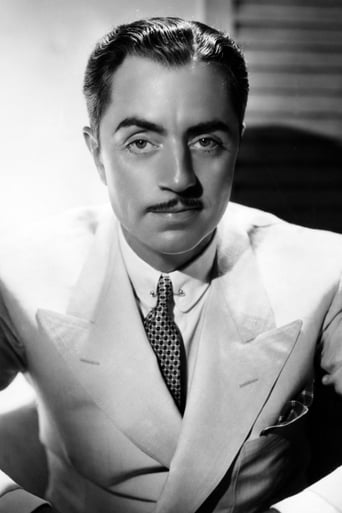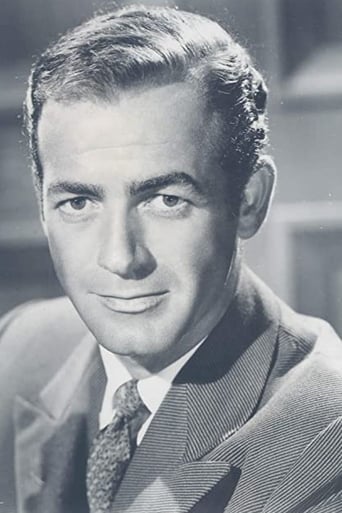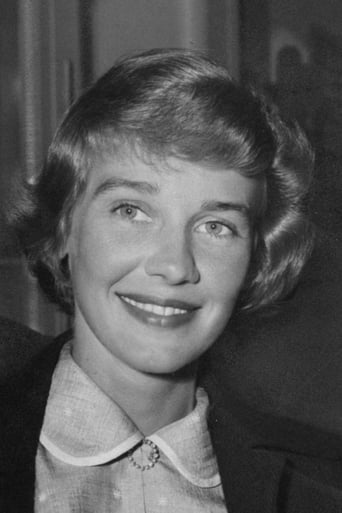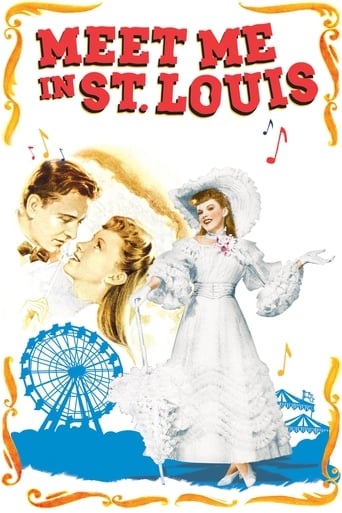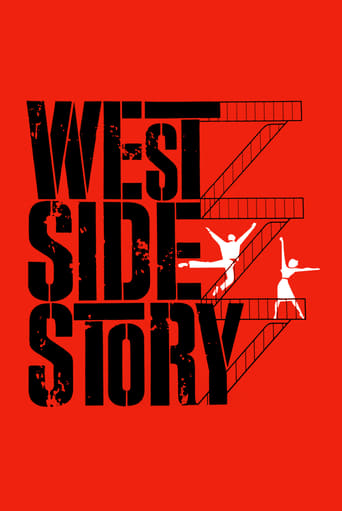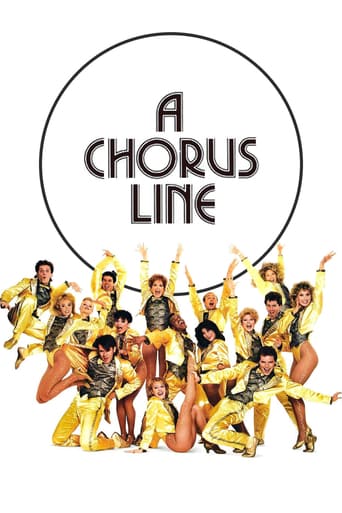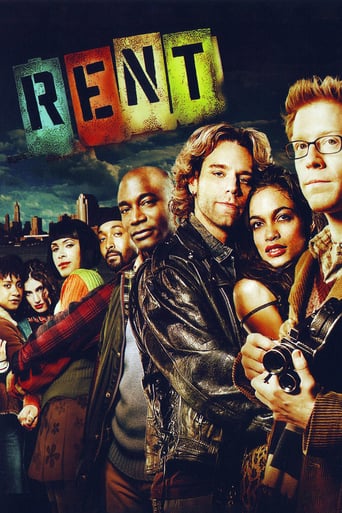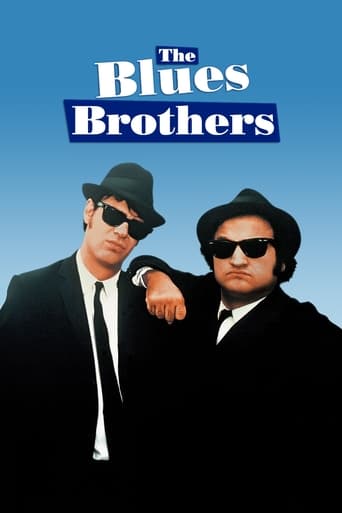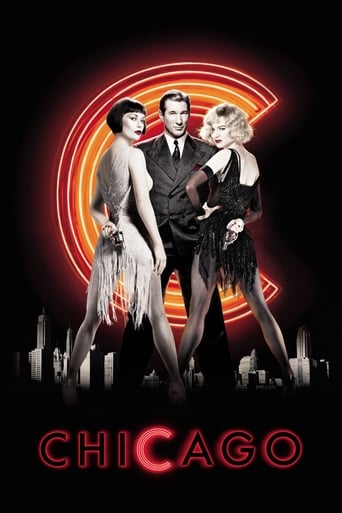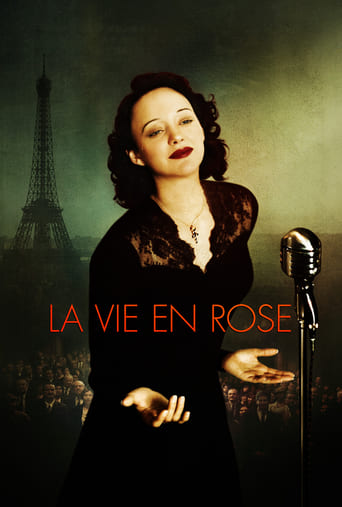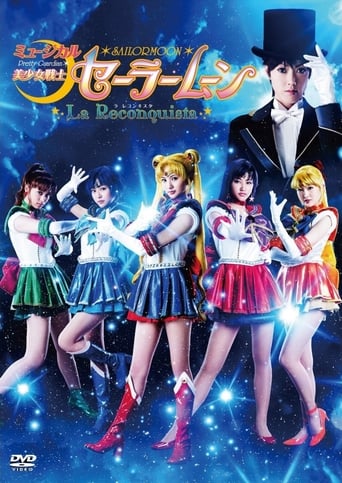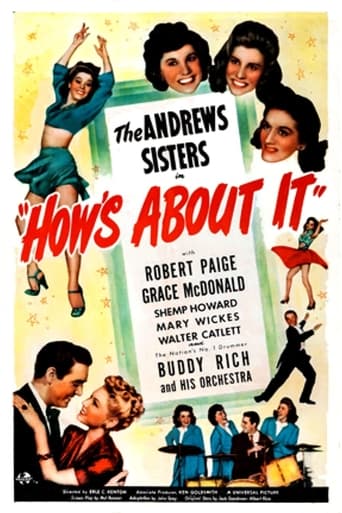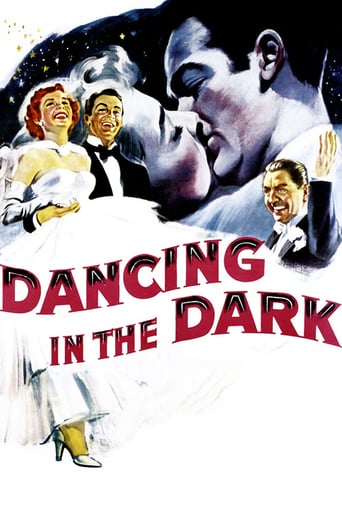
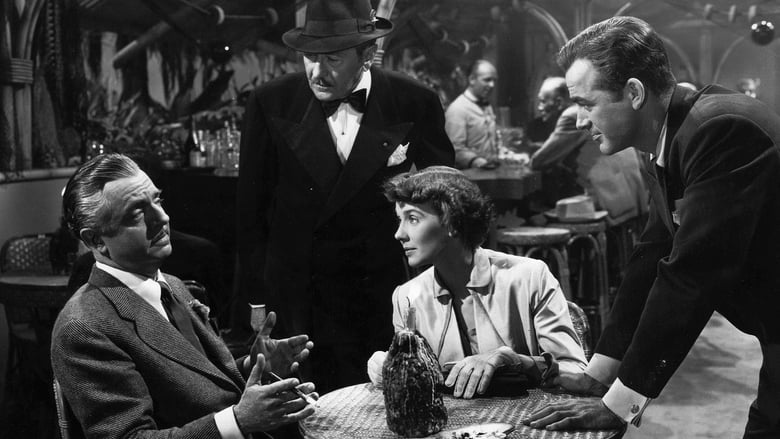
Dancing in the Dark (1949)
Emery Slade was one of the brightest stars in Hollywood in 1932, but by 1949 his career has hit the skids. Fortunately, he is able to convince studio head Melville Crossman to cast him in the adaptation of a hit Broadway show. Crossman has one condition: Slade must travel to New York and convince the female star of the stage production to join the film. Slade goes, but, when he eyes the winsome Julie Clarke, he hatches a different scheme.
Watch Trailer
Cast


Similar titles
Reviews
The Age of Commercialism
Purely Joyful Movie!
Yo, there's no way for me to review this film without saying, take your *insert ethnicity + "ass" here* to see this film,like now. You have to see it in order to know what you're really messing with.
It is neither dumb nor smart enough to be fun, and spends way too much time with its boring human characters.
That's how William Powell's Emory Slade describes his reputation as a temperamental former star who becomes a Hollywood talent scout when 20th Century Fox plans a film version of the 1931 Broadway musical revue "The Band Wagon" (and which MGM later added a story and more of its songs to). Only a few of the Dietz and Schwartz songs are heard here before Fred Astaire and Cyd Charisse danced in the dark, and the storyline here is much darker, too.Powell plays an actor with many personal demons, very much unlike his most famous character of Nick Charles, and even darker than his Broadway mogul, Florenz Ziegfeld. Here, Powell is promoter, not producer, that role being given to the equally legendary Adolph Menjou, while Jean Hersholt (of the Oscar's Humanitarian Award) plays himself as the representative of the Motion Picture Aid Society determined to help the down on his luck but stubborn Powell.As for Betsy Drake as the young ingénue chosen for the lead in the musical, she is certainly lovely, but lacking in superstar magnetism. She is a fine singer and dancer, but I can't believe anybody would buy her as the next Judy Garland or Betty Grable (Cary Grant, maybe, but he married her...) The musical numbers are cut down to two separate segment "auditions"-one live ("New Sun in the Sky"), the other a filmed screen-test that is shown at the Chinese Grauman's where Drake sings and dances the title song and a bit of "I Love Louisa".As a musical, I recommend "The Band Wagon" far more than this, but this is a unique credit in Powell's career, one of his darker dramatic parts, and highly recommended for that. Mark Stevens seems out of place here as Drake's love interest, but there is an amusing cameo by future "Caged" matron Hope Emerson as Powell's gruff landlady.
This was introduced as the 'rarely seen' Dancing in the Dark when it showed on the Turner Classic Movie channel - and after seeing the first half I knew the reason why. William Powell's character went from a totally self-absorbed PITA to a lovable, caring personality in a blink with little of import to cause that change. Mark Stevens, while a handsome man, is just a cardboard figure; but the absolute worst was Betsy Drake. There is not a single spark of life in her and it is totally unbelievable that any fellow actor could believe she would project on the screen and want to cast her as any part, let alone a lead. Whenever she speaks energy just drains off the screen and I gave up the movie just after the audition scene. Of course the songs are wonderful and I always wondered why the real Bandwagon only had truncated versions of such great songs. Try thinking of Betsy Drake singing on half the screen and Cyd Charisse on the other. The comparison is so one-sided that Betsy Drake might even be some strange unknown gender - human but with no gender-based allure.
Betsy Drake must have been "Dancing in the Dark" in this 1949 film starring William Powell, Mark Stevens, Adolph Menjou and Gene Hersholt. Black and white with not much budget, 20th Century Fox apparently used this movie musical to promote "The Prince of Foxes" (which they also didn't bother to shoot in color) rather than Betsy Drake. Nobody was doing her any favors by putting her in this film.William Powell plays a much hated has-been movie star named Emery Slade. Down on his luck and too proud to accept charity, he convinces Melville Crossman, the head of 20th Century Fox, that he can sign a Broadway star to a contract for a big film (not this one). The star is the daughter of his former show business partner. Fox puts him on as an agent and sends him to New York with a publicist, Bill Davis (Mark Stevens). Bill is in love with an aspiring performer, Julie Clarke (Drake). But she won't marry him until she's had her chance. Unbeknownst to Bill, Julie goes to see Slade to try and get an audition for the movie, not realizing that an item about it in the trade papers isn't really true. Drunk and half asleep, when Emery wakes up and sees Julie, he thinks she's an old girlfriend. There's a good reason for that. Maybe you can guess what it is. He did. Anyway, Emery discourages the Broadway star from taking the role and works with Julie so that Crossman will cast her.There are a couple of problems with this film. The first one is that it looks cheap. The second one is Betsy Drake. A pretty woman, Drake was only a fair actress, a non-dancer and a non-singer. So what is she doing in a musical playing an aspiring musical performer? Good question.William Powell is wasted here, as is Mark Stevens.At the end of the movie, there is a big premiere for "The Prince of Foxes." Crossman's office was apparently a replica of Zanuck's office, and name Melville Crossman was apparently a pseudonym that Darryl F. Zanuck used when he wrote scripts. I hope he didn't write this one.
This is a good film for fans of William Powell, Betsy Drake, Jean Hersholt, and/or films about Hollywood or the road to success. Inspirational in that "we're gonna make it" way, however corny that can be. The plot twists are good, if melodramatic, the "schemes" hatched by the characters to achieve their objectives are clever, and there are some good musical numbers, although these are far fewer than in the musical, "Bandwagon," which is based on the same source. I found it a very pleasant evening's entertainment.


